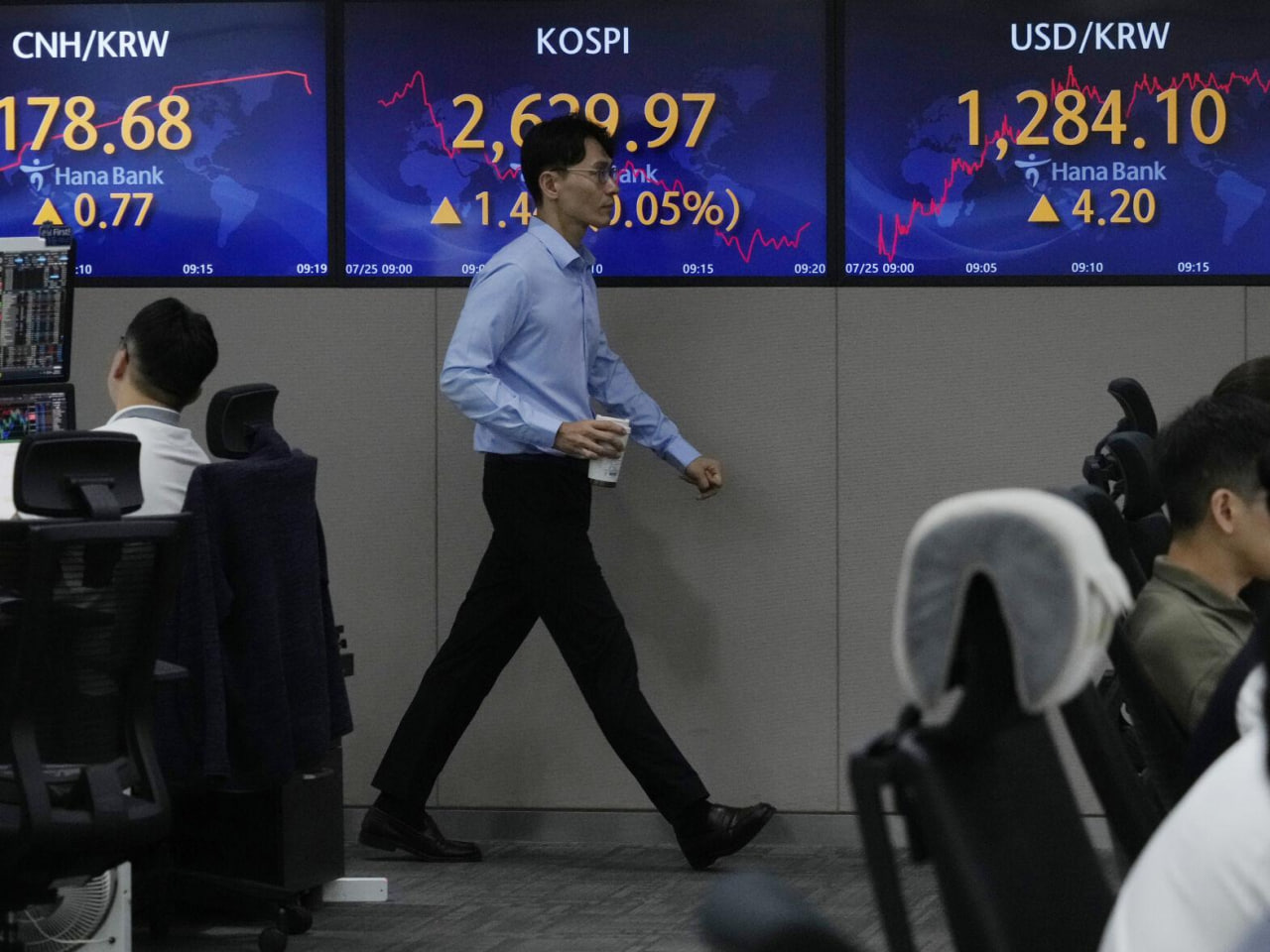France's Fiscal Tightrope: Navigating a Budgetary Crisis After the Fall of the Barnier Government
Meta Description: France's political upheaval, triggered by the rejection of the 2025 budget, has left the nation in a precarious financial position. This in-depth analysis explores the recently passed provisional budget, its implications, and the challenges ahead for France's economy. Keywords: French Budget Crisis, Provisional Budget, Barnier Government, Le Pen, French Politics, Fiscal Policy, Economic Instability, Government Debt.
Imagine this: a nation, a proud beacon of European stability, suddenly finds itself teetering on the brink of a fiscal cliff. That's precisely the situation France found itself in earlier this year. The air crackled with political tension, the whispers of economic uncertainty echoing through the grand halls of power. The fall of the Barnier government, a seismic shift brought about by a controversial 2025 budget proposal, left the nation scrambling for a solution. The ensuing political turmoil, a whirlwind of accusations, alliances, and betrayals, culminated in the passage of a temporary budget – a stopgap measure designed to keep the lights on while the country grappled with a full-blown constitutional crisis. This wasn't just a spat between political parties; this was a battle for the very soul of France's economic future, a fight that had far-reaching implications for the entire European Union. The drama unfolded in a breathtaking sequence of events, from the initial budget rejection to the frantic search for a solution, culminating in the nail-biting passage of the emergency budget. This article delves deep into the heart of this crisis, exploring its causes, consequences, and the uncertain path ahead for France. We’ll unveil the inner workings of the provisional budget, dissect the political maneuvering that led to its enactment, and assess the potential long-term effects on the French economy and its international standing. Get ready for a gripping account of a nation grappling with a budgetary bombshell – and the potential for a far-reaching domino effect across Europe.
The Provisional Budget: A Band-Aid on a Gushing Wound?
The recent passage of France's temporary budget was, in a word, necessary. But let's be clear: it's a short-term fix, a bandage slapped on a very deep wound. The situation is far from ideal. With the 2025 budget plan rejected in a no-confidence vote – a stunning defeat for the Barnier government – the country faced a very real possibility of governmental shutdown. Think about it: no tax collection, no government spending, essential services grinding to a halt. The provisional budget, hastily cobbled together, prevents that immediate collapse. It essentially allows the government to continue operating at a basic level, collecting taxes and incurring debt to stay afloat. However, this is not a sustainable solution. The real work – crafting a viable long-term budget – remains undone.
This temporary measure is fraught with challenges. Firstly, it lacks the long-term planning and strategic investments crucial for economic growth. It's essentially borrowing time, buying a few months to figure out a more permanent solution. Secondly, the reliance on increased debt raises concerns about the country's long-term fiscal sustainability. France, already grappling with a significant debt burden, will see its debt-to-GDP ratio continue to rise under this makeshift budget. This is a ticking time bomb, potentially impacting future economic growth and investment.
The passage of the provisional budget itself was far from smooth sailing. The political landscape is deeply fractured, with Marine Le Pen's far-right party and various left-wing factions uniting against the Barnier government's budget proposal. This unprecedented alliance highlights the deep divisions within French society, making the task of forging a consensus on a long-term budget even more daunting.
Key Features of the Provisional Budget:
| Feature | Description | Impact |
|-----------------|--------------------------------------------------------------------------------|-----------------------------------------------------------------------------|
| Tax Collection | Continues at existing rates. | Provides essential revenue for immediate government operations. |
| Government Spending | Restricted to essential services. | Prevents a complete government shutdown; limits investment in new initiatives. |
| Debt Issuance | Increased to cover the shortfall. | Increases France's national debt; raises concerns about long-term sustainability. |
| Duration | Until a new budget is approved. | Provides a temporary solution, delaying critical decisions and long-term planning. |
The Aftermath: Political Fallout and Economic Uncertainty
The fall of the Barnier government was a shock to the system. It sent shockwaves through the European Union, raising questions about political stability in one of its most important member states. The political fallout has been significant, with various political factions vying for power and influence. The ensuing uncertainty is fueling economic anxieties, making it difficult for businesses to plan for the future and investors to feel secure. The lack of a clear long-term economic strategy is particularly worrying. Businesses thrive on stability and predictability; this crisis has shattered both.
The situation is further complicated by the rise of populist and nationalist sentiments in France. Marine Le Pen's significant role in the downfall of the Barnier government underscores the growing influence of these ideologies. Her opposition to the budget was not just a matter of policy disagreements, but also a reflection of deeper societal anxieties and frustrations with the established political order. This adds another layer of complexity to the challenge of finding a durable solution to the budgetary crisis. It's not just about numbers; it's about addressing fundamental issues of identity, trust, and the role of government in the lives of everyday French citizens.
The Role of Marine Le Pen and the Far-Right
Marine Le Pen's influence in the recent French political turmoil can't be overlooked. Her party’s pivotal role in bringing down the Barnier government highlights the shifting political landscape in France. This isn't simply about left vs. right anymore; a new axis of power is emerging, one that challenges the traditional political establishment. Le Pen’s success in mobilizing opposition to the 2025 budget demonstrates her growing political clout and the resonance of her anti-establishment message with a significant segment of the French population. This underscores a key challenge for whoever eventually forms a stable government: addressing the grievances and concerns that fueled Le Pen’s rise to prominence. Ignoring these sentiments would be a grave mistake, potentially leading to further political instability.
Her specific objections to the budget remain a subject of debate, but fundamentally, they pointed to broader concerns about national identity, economic sovereignty, and the perceived failures of the existing political system. This points to deeper structural issues within French society and the need for a more inclusive and representative political process.
The Path Forward: Rebuilding Trust and Stability
France now faces a crucial juncture. The provisional budget is merely a temporary reprieve. The true test lies in crafting a sustainable long-term budget that addresses the underlying economic challenges and fosters national unity. This requires a bipartisan approach, a willingness to compromise, and a clear vision for France’s economic future. The government must engage in meaningful dialogue with various stakeholders, including businesses, labor unions, and civil society organizations, to forge a consensus on economic policies. Transparent communication and an inclusive decision-making process will be vital to rebuilding trust and confidence in the government. The focus should be on long-term economic growth, sustainable fiscal policies, and investments in key sectors like education, infrastructure, and innovation.
Frequently Asked Questions (FAQ)
Q1: What caused the fall of the Barnier government?
A1: The Barnier government fell due to a no-confidence vote triggered by the rejection of its proposed 2025 budget. This rejection was driven by a coalition of opposition parties, including Marine Le Pen's far-right party and various left-wing groups.
Q2: What is the provisional budget?
A2: It's a temporary budget designed to keep the French government running until a new, permanent budget is adopted. It allows for continued tax collection and debt issuance but restricts spending to essential services.
Q3: How long will the provisional budget last?
A3: The provisional budget will remain in effect until a new, long-term budget is approved and enacted by the French parliament.
Q4: What are the potential long-term consequences of the crisis?
A4: The crisis could lead to increased national debt, slower economic growth, and continued political instability. Without a clear and sustainable long-term plan, France risks further economic and political turmoil.
Q5: What is the role of Marine Le Pen in this crisis?
A5: Marine Le Pen's party played a crucial role in the downfall of the Barnier government, highlighting the growing influence of the far-right in French politics. Her opposition to the budget reflected broader societal concerns and anxieties.
Q6: What needs to happen to resolve the crisis?
A6: France needs a long-term budget that addresses underlying economic challenges, fosters national unity, and promotes inclusive economic growth. This requires bipartisan cooperation, transparent communication, and meaningful engagement with various stakeholders.
Conclusion
France's recent budgetary crisis is a wake-up call. It highlights the fragility of political stability and the challenges of navigating a complex political landscape. The provisional budget is a temporary fix, not a solution. The real work lies in building consensus, addressing underlying economic issues, and fostering a renewed sense of national unity. This requires strong leadership, political compromise, and a commitment to long-term economic sustainability. The path forward is fraught with challenges, but the alternative — continued instability and economic uncertainty — is far more perilous. The coming months will determine whether France can navigate this crisis successfully and emerge stronger, or whether the current turmoil will deepen, potentially impacting not only France but the entire European Union. The stakes are incredibly high.



